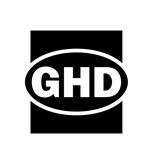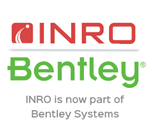Looking beyond the planned disruption – an evaluation of a TDM program
Susie Garland, Alexandra Lyle & Dr Caroline Tomiczek
Transport for NSW & Urbis, New South Wales
This presentation was delivered at the 2021 Online Conference Series and until October 2022 is only available to registered delegates and Content Access Pass holders via Interchange. For information on accessing this and other presentations please review the Content Access Pass options.
ABSTRACT
Travel Demand Management (TDM) is the application of a focused, data-led strategy to change demand on transport networks by redistributing journeys to other modes, times, routes or removing the journey altogether. TfNSW's Travel Demand Management Implementation team is the NSW TDM Centre of Excellence and works within the Movement and Place Framework, providing the link between the two to create sustainable travel behaviour and demand centres; which supports the delivery of Future Transport 2056.
TfNSW when developing projects are required by the TfNSW Business Case Guidelines to start using the TDM approach for projects from scope to evaluation, reframing the question from what infrastructure is needed to what outcomes NSW Government and their customers want to achieve in travel behaviour and place. The approach of the TDM is to define what the sustainable outcome is and also help TfNSW improve efficiency and reduce or defer capital spending upgrades to the road or public transport network – and respond to a global pandemic.
But what confidence can we have in the TDM programs achieving not only the sustainable travel behaviour changes targeted, but creating a resilience in our transport network and places to respond to unplanned events?
TfNSW COVIDSafe Travel Choices (2020- ongoing) initiative is being delivered on learnings from the Travel Choices Station Link Program (Program) delivered in Macquarie Park in 2018 and 2019 to support the closure of three train stations in the Macquarie Park precinct, for upgrading to enable the new Sydney Metro North West service
The Travel Choices Station Link Program was independently evaluated by URBIS in 2020 in response to a recommendation from the NSW Auditor General the Travel Choices Program. The evaluator found that the Program contributed to keeping Macquarie Park moving during the station closures and met the Program objectives. The evaluator found that overall, the Program design can be described as data led and adopting a multi-pronged, customer-focussed and precinct specific approach, in line with identified best practice for TDM programs. The Evaluator concluded that the evaluation demonstrated the potential of TDM approaches to achieve a number of outcomes, including station crowding and provided recommendations for future Travel Demand Management Programs which TDMI has started to implement. Critically, for the COVIDSafe Travel Choices initiative the evaluation approach informed the delivery of the initiative and a key finding was that the Program has enabled responses to the COVID-19 pandemic and supported ongoing relationships with businesses, generating reputational benefits for TfNSW.
This presentation will focus on the evaluation of the Travel Choices Station Link Program, how TfNSW has applied lessons learnt and share the next steps for the Travel Demand Management team.
Author(s)
Susie Garland | TfNSW
Susie leads Transport for NSW’s Travel Demand Management team. She has been leading the Travel Demand Management program since 2015 and prior to this has worked on a number of behaviour change programs both at the state and federal level.
Travel Choices is Transport for NSW’s travel behaviour change program which has been working with employers in strategic business centres to understand needs, share information about the transport system and encourage sustainable travel behaviour.
She believes in the value that Travel Demand Management can provide to the community in terms of providing successful places which deliver social, environmental and economic improvements through more walking, cycling and public transport use and less dependence on cars.
Susie’s experience is in travel demand management and behaviour change, project and program management, change management and stakeholder engagement and communications.
Susie and her team have been heavily involved in Transport for NSW’s Covid response, launching the COVIDSafe Travel Choices program in 2020 to help businesses and their employees make the right decisions about if, when and how to travel for work as businesses transition to their new normal.
Alexandra Lyle | TfNSW
Alexandra has been leading the Travel Choices Program since 2018 and prior to this has worked across the NSW Government transport cluster from strategic planning, development and program implementation.
Travel Choices is Transport for NSW’s travel behaviour change program which has been working with employers in strategic business centres to understand needs, share information about the transport system and encourage sustainable travel behaviour.
Central to Alexandra’s approach to transport and place making is to ensure that it support sustainable development outcomes and, most importantly, creates places that she wants to live, work and play. Her approach is to embed Travel Demand Management in transport projects from scope to evaluation, reframing the question from what infrastructure is needed to what outcomes NSW Government and their customers want to achieve in travel behaviour and place.
Alexandra’s experience is in travel demand management and behaviour change, transport planning, infrastructure development, urban design, active transport, project and program management, change management and stakeholder engagement.
Dr Caroline Tomiczek | Urbis
Dr Caroline Tomiczek has over 15 years of research and policy-development experience, including a PhD in Psychology, with a focus on behaviour change, from Macquarie University. Caroline is highly skilled in the design and oversight of complex and challenging social research projects, including social marketing research, program and policy evaluation, stakeholder research, and service evaluations. Caroline is particularly interested in using evidence to maximise the effectiveness of government interventions, especially for vulnerable community members.
Caroline has extensive experience in formative, process, and outcome evaluations, from the development of theories of change and evaluation frameworks through to integrated analysis and reporting against outcomes. She has overseen large and sometimes sensitive long-term evaluations for Commonwealth and State government departments.
With regard to the Travel Choices evaluation, Caroline enjoyed the challenge of considering a program respectively and completing the project within a tight timeframe. She also enjoyed working collaboratively with Transport for NSW to ensure the evaluation was as robust and defensible as possible. Caroline has come out of the project a committed advocate for Travel Demand Management, excited by the possible ways in which evidence-based interventions can be used to shape positive transport behaviours, with significant social, economic and environmental benefits.








